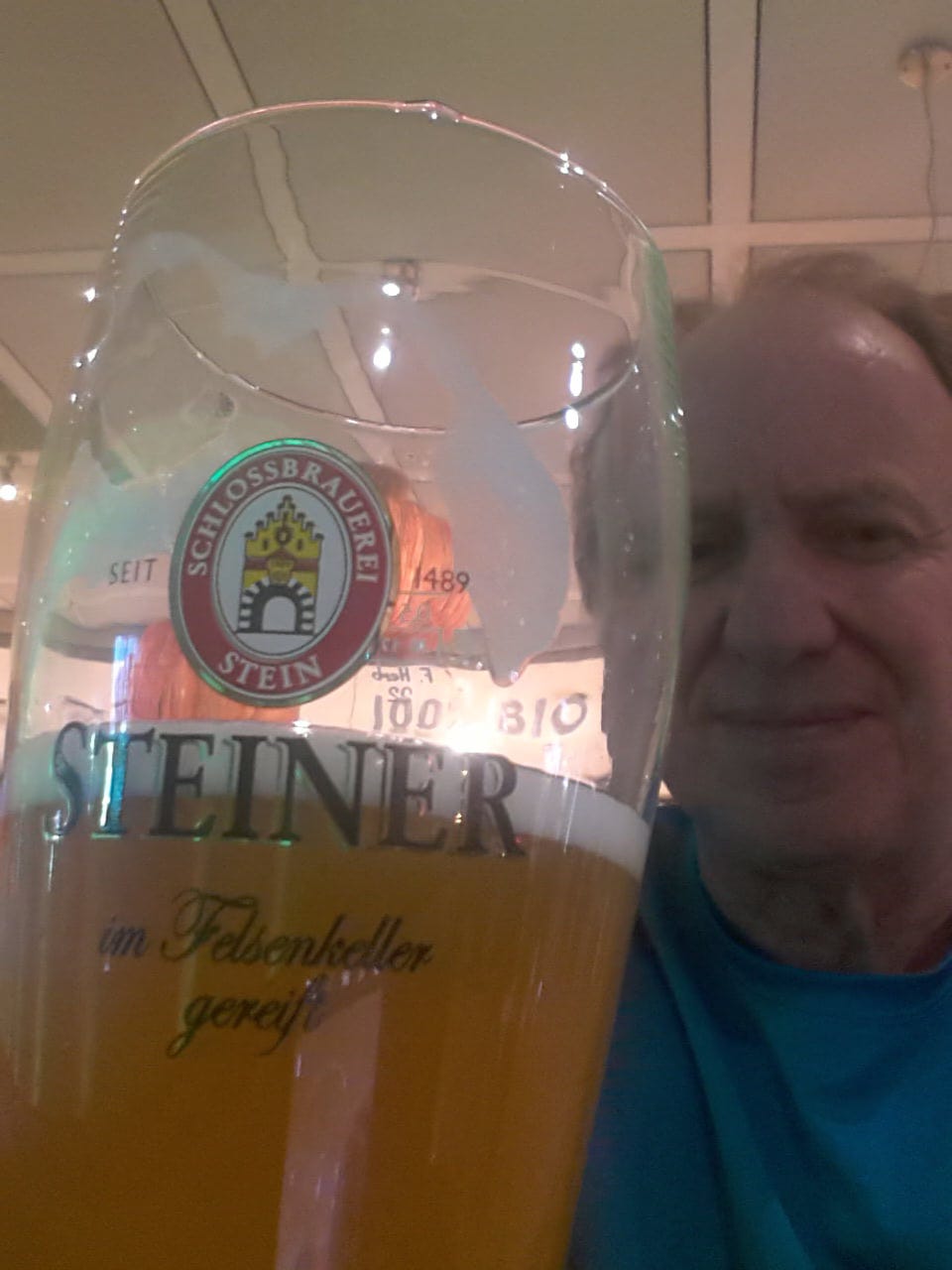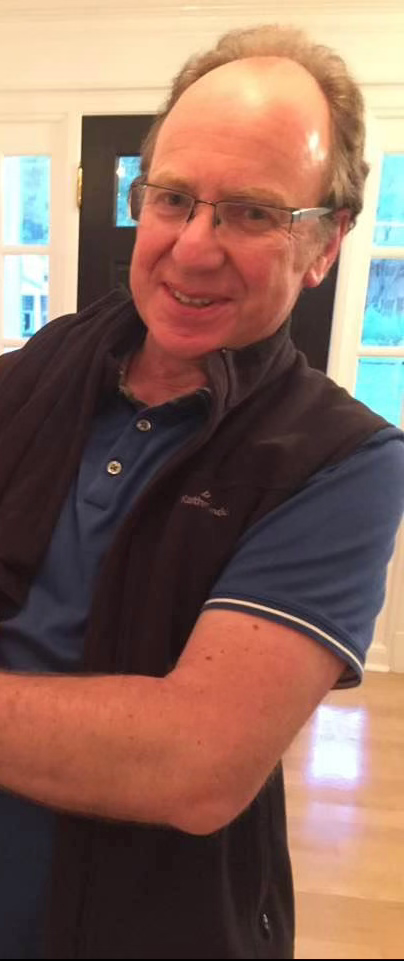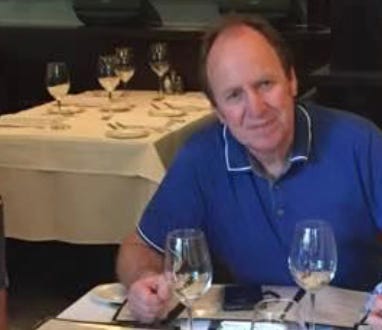NEW TERRITORY: HYPOGLYCEMIA AS AN EXCUSE FOR SEXUAL ASSAULT
a Guest Post by Kate Rendall about Stephen Popperwell
While I can’t confirm or deny these allegations in Kate Rendall’s guest post below, I met Kate this past summer and she strikes me as a very trustworthy person. Like, no red flags. And I met Stephen Popperwell in the summer of 2002, when I played first oboe with the New Zealand Symphony while he played second. With no questions in my mind, I can say he was the worst second oboe player I’ve ever played with in my professional career, but more than that, he was also a tremendous asshole. That was sort of par for the course for me at that time, being a young woman coming up in classical music when I had to play with old men who couldn’t play. They were commonly tremendous assholes, especially if they had to play to my left, so I didn’t think too much of him at that time. Maybe I should have, because Kate alleges this was all happening around this time.
As I’ve covered previously, Kate has only gotten back into music in recent years, turned off by it for 13 years, as she mentions below when naming Stephen Popperwell for the first time.
(All photographs have been found by me on Facebook.)
BY KATE RENDALL
In August 2005, the New Zealand Symphony Orchestra (NZSO) toured the UK and Europe. On top of their regular millions of taxpayer money, they received an extra $400,000.00 from New Zealand’s Cultural Diplomacy International Program Fund for this tour. The players were described as “cultural ambassadors” by the Prime Minister, Helen Clark. On that tour, the orchestra played a concert at the BBC Proms. This was a very big deal concert for the NZSO - it’s still mentioned on its Wikipedia page. I happened to be in London, and went with a friend.
After the concert, the orchestra celebrated back at its hotel. They invited friends, family and audience members to join them. My friend and I decided to go along. NZSO has since informed me that this was technically a non-sanctioned event, and that the NZSO management did not have any knowledge of it. However, an afterparty is commonplace after big sports or music events. The bar and lobby of the hotel were crowded, and people seemed to be having a good time. As an audience member, I didn’t question the invitation or wonder whether or not the players had permission for the gathering.
At that party, I bumped into NZSO oboist Stephen Popperwell, who had been my university oboe teacher, and whom I had looked up to tremendously. He invited me up to his to room to look at one of his oboes. Since we had had lessons in his home and a long history of friendly social interactions that had at the time made me feel accepted and grown-up, I thought nothing of going up with him to see the oboe. After he showed me the instrument, he turned to me and said, “We both know I didn’t ask you here to show you an oboe.” In a split second, my stomach dropped. It is hard for me to write about what happened next. I tried to push him away and politely say no, but eventually found myself frozen on the bed, under him, with his hands and tongue everywhere. I couldn’t move my body. Afterwards I went back to my friend’s flat, and he began sending me text messages about how he was still thinking of me. I sent him an icy reply; he stopped texting, and I didn’t hear from him again for many years. He retired from the orchestra a year or so later.
This assault was tremendously traumatic for me. I responded by avoiding music and musicians altogether. It took 13 years for me to find my way back to playing the oboe again.
Earlier this year, Stephen Popperwell phoned me, out of the blue. I recorded the call. I believe his call was prompted because someone else had contacted him to ask questions about my account of that night; Stephen relayed this to me and told me he had denied it all, saying it was a “load of nonsense.”
Stephen then told me a new version of events. He said that he remembers inviting me up to his hotel room and recalls that we chatted for a bit. He told me that he then suffered a hypoglycemic event, caused in part by a lack of food and “having had two or three very rapid beers,” and that as a result he only has an incomplete, vague memory of what happened in his hotel room. These hypoglycemic events, Stephen explained, can occur quite rapidly. He said that while he thinks he remembers kissing me, remembers us lying on the bed, and remembers us “hugging,” he thinks but “wouldn’t swear on a stack of bibles” that my clothes were disheveled. He said he can’t remember what happened next, his memory is blank until after I left the room.
However, he said, he does have some memory of what happened afterwards: he recalls that he went back down to the bar, socialized further, and had another beer. Not until he was back in his room later that night, he said, did he discover his hypoglycemia and was he able to treat it.
I can’t describe what it was like to receive that phone call, nearly 19 years later. It left me with a heap of questions. I am massively skeptical about this alleged hypoglycemic event, and the details don’t add up to me. But even if I accept the medical excuse and understand that when Stephen gets hypoglycemic, his behavior is not normal and he has no idea what he is doing, is that supposed to give him a pass for what I remember him doing to me?
I also have questions about the orchestra’s handling of the situation. First, if a player is known to have a serious medical condition, why weren't adequate steps taken to help prevent such a hypoglycemic episode? Does Stephen regularly sexually assault other people during these episodes? Given that by Stephen’s own account, it is easy to tell when he is having such an episode. (He said, “If you didn't know me, and you saw me in the street, and I was having a hypoglycemic—that's a low glycemic event, you would think I was slightly off my face or had some serious mental issues or something like that.”) How did the other people at the party fail to notice that something was wrong, after he came back to the party, and get him medical attention?
When I later contacted the NZSO about this incident, they said that what had happened was after call time and had “no connection” with and is “entirely outside of Mr. Popperwell’s employment with the orchestra.” The orchestra also said it had no power to investigate. My question here is: how was the NZSO holding a “non-sanctioned” after-party in its own hotel, without management’s knowledge? By that logic, the orchestra couldn’t investigate any complaint unless I had actually been assaulted onstage, while the music was playing. I don’t know why the orchestra can’t take a look at what happened that night, to see if there is anything the orchestra could learn for future tours, or what they can do, as the largest classical music institution in New Zealand, to contribute to a safer culture for women here.
Nineteen years after my sexual assault, I still have a lot of questions but no answers. The NZSO carries tremendous weight and influence, not just in our classical music community in New Zealand, but also as an international cultural ambassador. Having my complaint to them handled so callously only underlines the pressure that victims of sexual assault often feel in our society: they clearly feel everything would be so much easier if only we would just go away and shut the fuck up.
BY KATHERINE NEEDLEMAN
To read my previous coverage of Kate Rendall, have a look here:
KATE RENDALL
Kate Rendall, an amateur/professional oboist from New Zealand has been featured many times on my Facebook page, and we raised $3161 for RAINN in her honor not too long ago. I provide her update from today about how the New Zealand Symphony Orchestra instructed its oboists not to communicate with her. After that, I have collated relevant posts I’ve made …











I was unaware of the relationship between glycemic load and the level of bullshit one man can generate...some scientists should look into that.
Yeah, I’m an RN, there is no fucking way he’s wandering around for the time necessary to complete a sexual assault, and he sure as shit wouldn’t have had the faculties to plan it. And if he magically did have low blood sugar for some reason, it doesn’t excuse an assault. Sexual assault isn’t one of the things they warn us about when taking care of patients with critically low blood sugars. FFS.